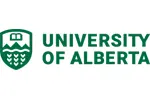

Research facilities and lecture courses for graduate programs are offered by the Department of Biomedical Engineering. The Department offers programs leading to the degrees of Master of Science and Doctor of Philosophy in Biomedical Engineering, as well as the Master of Science and Doctor of Philosophy with a specialization in Biomedical Sciences. The degrees differ according to the undergraduate preparation of the student, the former for students with a background in engineering or academically similar areas, and the latter in biological sciences. Under the Individual Interdisciplinary Studies program (see Conduct of Examinations) students may study and carry out their research in the Department of Biomedical Engineering and another department in the University. The Department of Biomedical Engineering is part of both the Faculty of Engineering and the Faculty of Medicine and Dentistry.
The research activities of members of the Department are directed at aspects of biomedical engineering, including but not limited to digital image processing, nano structured biomaterials, in-vivo nuclear magnetic resonance, including vascular imaging, stroke, functional magnetic resonance imaging (fMRI), as well as non-invasive biochemical analysis through spectroscopic methods, MRI of cerebral vascular disease, and restoration of function following spinal cord injury. In addition, research is performed by members of other departments who collaborate with those of the Department in areas that include adaptive controllers in medicine, aerosol inhalation and delivery, assistive technologies, biofilms, biomaterials and drug delivery, biomechanics of bone, biomechanics of walking, biomedical modeling, biophotonic and ultrasonic imaging, bracing and wheelchairs, cardiovascular biomaterials, cell and tissue cryobiology, computational neuroscience, control and restoration of motor movement, functional electrical stimulation, lab-on-a-chip, laser applications in medicine, mathematical modeling of drug delivery, mathematical modeling of the immune system, medical image processing, micro-computed tomography, modeling of biomedical processes, nano-bio-mechanical systems, nanotechnology and drug delivery, nanotechnology in medicine, oral/facial prosthetic reconstruction, orthodontic retraction appliances, rehabilitation engineering, rehabilitation robotics, resorbable implants, scoliosis and spinal column correction, spinal disorder assessment and treatment, therapeutic ultrasound and biomechanics in dentistry, tissue engineering, and ultrasound applications in medicine.
Learn more about Biomedical Engineering, MSc, PhD - at University of Alberta
Visit course webpageStudents who receive scholarships from external agencies, including the Natural Sciences and Engineering Research Council of Canada (NSERC), the Canadian Institutes of Health Research (CIHR), and the Alberta Heritage Foundation for Medical Research (AHFMR), may hold these awards in the Department of Biomedical Engineering. Exceptionally qualified applicants may be nominated by the Department for a master's thesis-based Scholarship, a PhD Scholarship, or an FS Chia PhD Scholarship. Information concerning these scholarships is available at www.gradstudies.ualberta.ca.
The Department's minimum admission requirements are an undergraduate degree with a grade point average of at least 3.3 in the last two years of undergraduate work (or graduate work) at the University of Alberta, or an equivalent qualification from another institution, and a TOEFL score of 95 or equivalent on the internet-based test where applicable (refer to English Language Requirement).
The University of Alberta offers a wide ranges of scholarships to international students. You will be evaluated for these scholarships when you apply for admission. Your eligibility will be based on your high school admission average at the time of your admission offer. We'll assess you for a match to the following three scholarships. If you are eligible for an admission-based scholarship we will contact you directly!
You can also apply for scholarships based on your application, including the President’s International Distinction Scholarship, awarded annually to 25 international students, worth up to CAN $120,000.
To find out more about scholarships click here.
There are 370 other courses listed from University of Alberta. A selection of these are displayed below:
University of Alberta main campus location is shown on the map below:
Find out more about studying in Canada